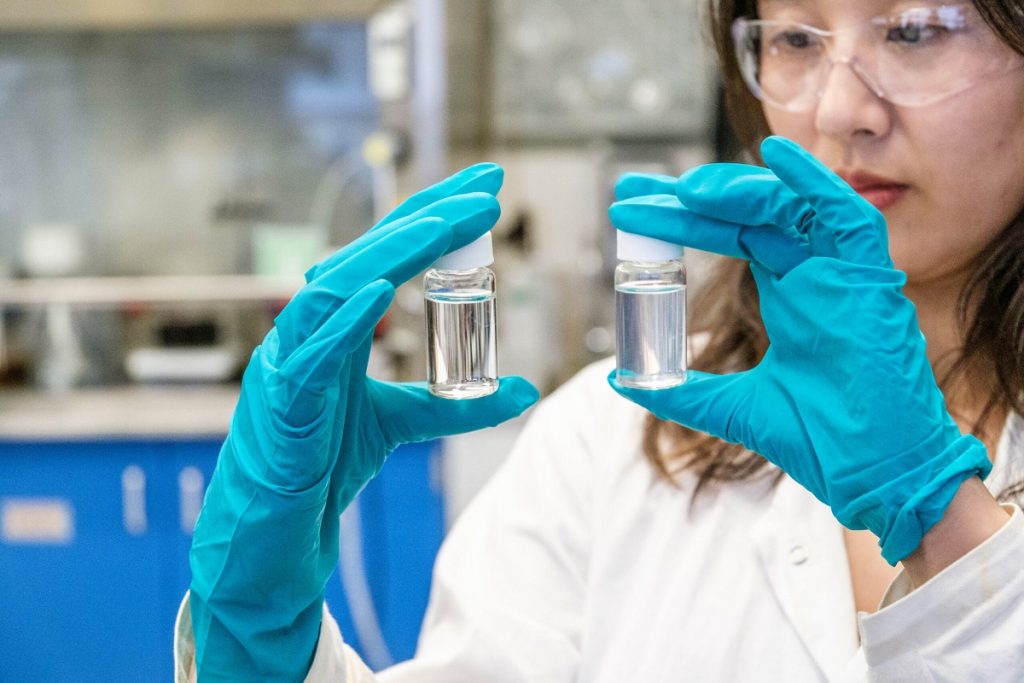In a remarkable leap forward, scientists have harnessed the power of natural compounds to tackle the burgeoning challenge of microplastics in drinking water.
The collaboration between the University of British Columbia and Sichuan University has given rise to the “bioCap” filter, an eco-friendly solution that effectively employs plant-derived ingredients to remove microplastics from water.
Central to this novel filtration technology are fruit tannins, the very substances responsible for the undesirable taste of under-ripe fruit. These tannins are combined with a coating of sawdust, resulting in a cylindrical water filtration device.
Remarkably, this bioCap filter has demonstrated the ability to eliminate microplastics with remarkable efficiency, ranging between 95.2% and 99.9%, depending on the composition of the microplastics being filtered.
The significance of this breakthrough is underscored by the omnipresence of microplastics in modern life. Detected in our bodies, water sources, food, and even the atmosphere, microplastics have become an alarming concern that necessitates innovative solutions. The bioCap device offers hope by capitalizing on the unique molecular interactions facilitated by tannic acids. This capability removes a diverse range of microplastic types, including those originating from clothing, cleansers, soaps, utensils, and packaging materials.
To validate the efficacy of the bioCap system, researchers conducted experiments on mice. Groups of mice were exposed to either purified water through the bioCap filter or untreated water. The results were striking, indicating that the process effectively prevented the accumulation of microplastics in the organs of the mice subjected to purified water.
What distinguishes the bioCap device is its resilience and effectiveness, even in less optimal conditions. A study published in Advanced Materials earlier this year confirmed that the bioCap filter exhibited impressive microplastic removal capabilities across different scenarios.
Dr. Orlando Rojas, the scientific director of UBC’s BioProducts Institute, emphasized the diversity of microplastic sources, including microfibers, microbeads, foams, and pellets. Through leveraging the molecular properties of tannic acids, the bioCap filter demonstrated its remarkable ability to address this multifaceted challenge.
Perhaps the most promising aspect of the bioCap solution is its inherent sustainability. Dr. Rojas highlighted that the filter comprises organic materials, starkly contrasting traditional plastic filters that often exacerbate pollution. The potential scalability of the bioCap system for industrial or domestic use further enhances its appeal as a pioneering solution.
In an era marked by heightened environmental awareness and mounting concerns over microplastic pollution, the bioCap filter stands as an ingenious response while showcasing the capacity of nature-inspired solutions to address complex environmental issues. It paves the way for a cleaner, more sustainable future.

